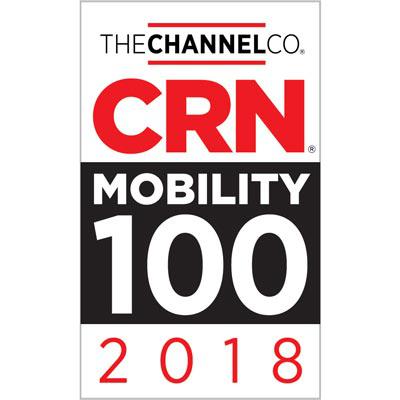2018 Mobility 100: 15 Coolest Mobile App Development Platforms

App Development Platform Innovators
The question of whether businesses need to be on mobile has been answered with a resounding "yes." Now the question for businesses has shifted to, "How fast can we get there?" Leading providers of mobile application development platforms for business apps offer a range of methods for rapid development of apps -- including low- and no-code methods -- along with powerful capabilities for easily connecting to back ends and for deploying the same app code across device platforms. To give a sense of the key players offering mobile app development platforms right now, we've rounded up 15 of the coolest vendors.
Adobe Systems
Shantanu Narayen, CEO
Headquarters: San Jose, Calif.
Adobe has shifted its focus from offering a full mobile app development platform in favor of its Experience Manager Mobile product, which targets marketing professionals. The product includes digital asset management for organizing, adapting and distributing media assets, along with easy management of customer-facing sites.

Amazon
Jeff Bezos, CEO
Headquarters: Seattle
Amazon Web Services' offering for mobile apps enables users to either start with their own app or use a starter kit with a pre-configured front end and back end. Users can also set up their app's back end with the AWS Mobile Hub, for easy configuration of services, and then connect to the back end using the AWS Mobile SDK.

Appcelerator
Patrick Donovan, CEO
Headquarters: Santa Clara, Calif.
Axway-owned Appcelerator offers a platform for developing apps that are written in JavaScript and capable of running natively on any operating system. The platform allows for reuse of up to 90 percent of code across device platforms and offers visual design tools such as a drag-and-drop palette.

Capriza
Yuval Scarlat, CEO
Headquarters: Palo Alto, Calif.
Capriza's Universal Micro Apps software sprovide an easier-to-implement approach to creating mobile app solutions for enterprise workforces. The software uses pre-built workflows—for common processes such as invoices and requisitions—to bridge the gap between legacy business applications and mobile devices. The solution stands out by enabling existing pieces of business app functionality to be quickly turned into simple "micro" apps, without a need for coding or APIs.
Embarcadero
Randy Jacops, CEO
Headquarters: Austin, Texas
Embarcadero (owned by Idera) says that its Rad Studio offering provides the fastest method for developing native apps that can run across platforms, using tools for app design, development, debugging and deployment. Recent updates provide enhancements such as the addition of new C++ capabilities.

Kony
Thomas Hogan, CEO
Headquarters: Austin, Texas
Kony says that its enterprise mobile app platform, the Kony Visualizer, can promise up to an 80 percent reduction in coding. Key capabilities include allowing access to native device capabilities (such as maps, browser and SMS) without the need to write code, as well as direct access to any iOS and Android native API from JavaScript.

Mendix
Derek Roos, CEO
Headquarters: Boston
With features such as "visual development" -- which offers visual modeling of applications as well as reusable building blocks for the apps -- Mendix says it dramatically reduces the need for coding and ultimately enables delivery of apps at up to 10 times faster than other approaches.

MobileFrame
Lonny Oswalt, CEO
Headquarters: Los Gatos, Calif.
MobileFrame has been an early entrant in the no-code, drag-and-drop approach to app development. The company's no-code tools cover both front-end development of apps, as well as back-end tasks (such as data binding and API creation).

Oracle
Mark Hurd and Safra Catz, Co-CEOs
Headquarters: Redwood City, Calif.
Oracle's Mobile Application Framework enables rapid development of applications that can be deployed with the same code to iOS, Android and Windows 10, using standard technologies such as Java, HTML5 and JavaScript. Meanwhile, Oracle's Mobile Cloud Service offers no-code app creation using drag-and-drop, through its Mobile Application Accelerator feature.

OutSystems
Paulo Rosado, CEO
Headquarters: Atlanta
OutSystems offers "full-stack visual development" with drag-and-drop capabilities across user interface, business processes, logic and data models. Apps can also be easily delivered and updated (with a "single click," according to the company), while the platform also offers the ability for users to share feedback within the app itself.
Pegasystems
Alan Trefler, CEO
Headquarters: Cambridge, Mass.
Pegasystems says its mobile development platform enables the creation of "meaningful" apps using low-code methods, enabled in part by a feature called Agile Workbench, which allows for real-time collaboration between the business and IT sides of the organization throughout the app creation process. Pegasystems also says it offers a unified platform for enterprise app development that brings together mobile with a wide range of other disparate technologies.

Progress Software
Yogesh Gupta, CEO
Headquarters: Bedford, Mass.
Progress' Telerik offering is a broad-reaching mobile app development platform,and includes a high-productivity development tool (Telerik AppBuilder) that leverages Progress' NativeScript, a JavaScript-based framework. User interface components cover the web (Kendo) and Xamarin, while native UI components for iOS, Android and Windows 10 are also offered.

Red Hat
James Whitehurst, CEO
Headquarters: Raleigh, N.C.
Red Hat's mobile application platform features a mobile back-end service based on Node.js, which helps to provide scalability and reuse as part of app development. The platform also offers flexibility for developers to use various tools and to choose whether to work in Red Hat's hosted platform or in a different environment.

SAP
Bill McDermott, CEO
Headquarters: Walldorf, Germany
SAP's mobile application development platform is based around the company's Fiori UX, while offering some different technologies including app templates, hybrid and native SDKs and an integrated development environment for building web and hybrid apps. The company offers various connectors for SAP systems, and the company also provides ready-to-deploy, industry-specific apps.

Salesforce
Marc Benioff, CEO
Headquarters: San Francisco
Salesforce's mobile app development offering is broadly applicable to a range of use cases -- from visual development tools for administrator users, to SDKs for professional developers. The offering also includes capabilities for working on apps offline and for designing highly scalable mobile back ends on Heroku.